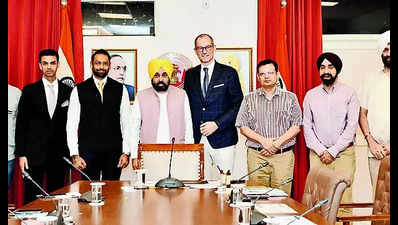“All of my male friends over the age of 32, find your nearest swap meet. Stay with me,” said actress in a video uploaded to her Instagram account. “Get you a matching shorts set, some Jesus sandals, a fedora, and a Bluetooth for good measure.
This is about Black tradition. I want my ribs, I want my burnt hot dog, and I want my link, and I want my potato salad.” Those were the hilarious words of the star, sharing her frustration over the fact that her phone has been quiet during what’s supposed to be peak barbecue season.

As we progress into the middle of summer and past three major cookout-appropriate holidays, I cannot help but notice the absence of invitations. My invites were so low that I began to question if my Black card had been revoked. There’s no smell of in the air, and not as many people are carrying aluminum food trays into the park.
It’s been dry, to say the least. Traditionally, were a place of fellowship where you’d have the opportunity to show off your latest dish, introduce your relatives to your new partner, catch up with distant relatives, spend time with the family elders, and enjoy a nice, slightly burnt hot dog or two off the grill for free. Adrian Miller is a historian, James Beard award winner, and author of .
Miller says cookouts emerged from the plantations and gained momentum during the great migration as Southern Blacks migrated to urban American cities. “Saturday evenings or Sundays after church were an opportunity to come together over good food and assert their humanity under horrific conditions,” he tells ESSENCE. “Cookout culture thrived with the mass migration to urban areas with denser populations.
In the rural South, because of the geographic isolation, coming together was more challenging. In cities, African Americans still had housing with meager or no kitchen facilities, but they could cook in housing common areas or nearby public parks. In time, as private homeownership improved, a person’s backyard became a great place to host a cookout.
” Our boomer parents would facilitate these simple gatherings. The notion was to come as you were and have a good time. But cookouts appear to happen less often these days for, possibly, a myriad of reasons.
Millennials graduated college during a financial crisis, were faced with a slow job market post-graduation, and were hit with a pandemic mid-career when most professionals began to hit their stride. The pandemic inflated , making essentials such as groceries unaffordable for some and driving the price of houses to record levels. But contrary to popular belief, millennials are buying homes.
According to the United States Census Bureau, 51.5% of millennials are homeowners. Still, even with homeownership rates finally creeping above 50%, millennials are still faced with challenges unique to their generation, such as inflation, substantial student loan debt, and rising homeownership costs.
Many still prefer renting over the responsibility of owning a home. Entrepreneur Tehsuan Glover, 44, lives in a luxury apartment complex in New Jersey. He is right on the cusp of the millennial and Gen X generations.
He has noticed that those around him don’t take advantage of shared outdoor amenities to host cookouts. “I’ve had the opportunity to reimagine cookout culture in a way that blends tradition with modern urban living,” he says. “While I enjoy hosting guests in my apartment, I also love utilizing the communal outdoor spaces like our balcony and courtyard.
These amenities are great selling points for downtown living, yet I notice many residents don’t take advantage of them.” Ayana Okoya, a 32-year-old communications manager, also based in New Jersey, and a homeowner for one and a half years, said she thinks the decline of cookouts is due to costs and millennials becoming more health conscious. “Just to gather people for a cookout for my husband’s birthday, it would cost me upwards of $1,000.
This isn’t including aesthetics, this is just renting chairs and including everything required to host a gathering,” she says. “This isn’t our parent’s generation. Back then, the goal was just to come over and eat.
Millennials are more intentional. Our taste levels have changed. We travel more and are exposed to different things.
I’m going to choose a brioche burger bun over white wonder bread.” She adds, “We’re growing up, and we’re learning about ingredients. I won’t give someone soda with high fructose corn syrup because it goes against my principles.
And inflation makes it really hard to host something.” Tionna Smalls, 39, a licensed realtor in the New York tristate, Delaware, and Maryland, says millennials are buying homes, but she believes they just don’t have the patience to host a cookout. “Places like Delaware still have bidding wars because the houses are big and the taxes are cheap,” she says.
“Right now, among millennials, it’s all about the suburbs. Even though we don’t cook out, it’s still all about getting that fly house in the suburbs.” Smalls goes on to describe cookout culture as a practice on its way out for the current 30+ group.
“Millennials will spend $300 at the seafood spot. We’re a microwave generation. We don’t have the patience to go in the backyard, pull out charcoal, and cook on the grill.
That’s a lost art among our age group,” she says. “My sister’s husband, he’s in his fifties and he was on the grill for hours last week. It’s not about the inflation; it’s about the time.
” , believes it is crucial to preserve these traditions. “Cookout culture is important because it’s a nexus for a number of things that are relevant to the sustainability of Black culture more broadly: multigenerational community, Black food culture, Black music histories, and so on,” she says. “For example, I grew up after Earth, Wind, & Fire’s heyday, but I know their music because of its centrality at the cookouts that I grew up going to.
” Miller doesn’t think the culture of the cookout will ever go out of style completely. “There’s something so elemental about human beings gathering around a fire to cook food,” she says. “Plus, cookouts are a vital part of family reunions and church life.
I don’t see that going away anytime soon. That said, the ‘old heads’ like me have to invite young people to cookouts that we host, urge them to keep this beloved culinary tradition going with their friends, and support them any way that we can.”.


















